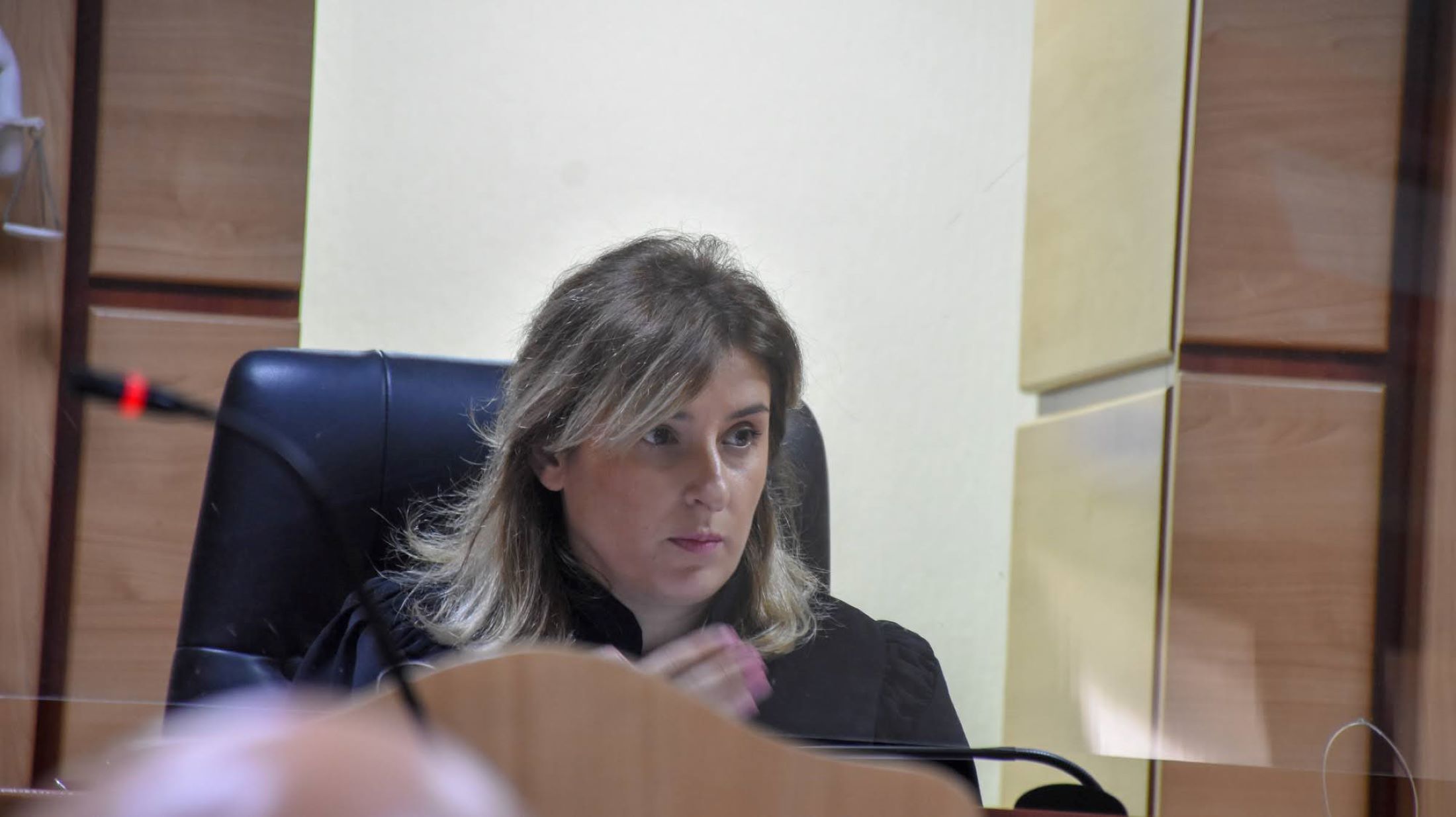
A protester who was arrested for holding a blank sheet of paper at a small protest against the Georgian Government has been convicted of petty hooliganism by the Tbilisi City Court and fined ₾500 ($190).
Eduard Marikashvili, a lawyer and chair of the Democratic Initiative of Georgia, was detained at a peaceful protest by several dozen people in front of parliament on 2 June.
Some have likened the police’s actions to Russia’s crackdown on protesters, where in recent years, Russian police have arrested several people for holding up blank sheets of paper during protests.
According to RFE/RL, Marikashvili’s conviction rested entirely on testimony from Koba Kapanadze, a police officer. Kapanadze falsely testified in court that Marikashvili had verbally abused police officers during the demonstration, shouting obscenities.
‘After that, we made a decision [to make arrests]. [Marikashvili] was also taking part, he was also saying these words. [He] was holding a paper in his hand, we called for him to stop these actions, after that, they were arrested’, Kapanadze said.
OC Media was present at the small demonstration from before Marikashvili arrived to the time of his arrest and at no point prior to his arrest did he shout obscenities or address police officers on the scene in any way. Neither did police warn demonstrators to stop before moving in to make arrests.
Footage from the protest filmed by OC Media shows police approaching the group of protesters in front of the parliament and arresting Marikashvili, who was holding a blank sheet of paper.
The footage was used as evidence in Marikashvili’s trial.
The protest on 2 June was a continuation of a demonstration organised by GEUT (‘stubborn’), an anti-government group, the day prior, in which the police confiscated and damaged banners held by the demonstrators.
GEUT was initially protesting statements made by Prime Minister Irakli Gharibashvili that NATO expansion was one of the main reasons for Russia’s invasion of Ukraine.
Marikashvili said that his conviction set a legal precedent for similar actions in the future.
‘The decision affects everyone because these actions were declared illegal for everyone in the future’, he wrote.
‘One of the goals of the punishment is to change the offender’s behaviour for the better, and the goal of this illegal trial and punishment is to [make me] reconsider the further continuation of my work’, he continued. ‘Therefore, no matter how severe the punishment was, it would not achieve this goal. I am not going to stop my rights protection activities — on the contrary.’
Marikashvili was among seven protesters who were detained on 2 June.
Two of those detained, Saba Brachveli, a member of the Open Society Foundation — Georgia, and human rights defender Nika Romanadze were also charged with petty hooliganism for holding banners on which the first name of Prime Minister Irakli Gharibashvili was spelt written with the letter ‘K’ (‘კ’) swapped for the letter ‘ყ’ — a K sound made in the back of the throat — so as to resemble the Georgian word for ‘dick’.
Another protester, Grigol Prangishvili, was also convicted of petty hooliganism for wearing a t-shirt with the same inscription.
They were each fined ₾500 ($190).
Nodar Sikharulidze was found guilty of petty hooliganism and disobeying police, and was fined ₾2000 ($750).

[Read on OC Media: Georgian activist on trial after holding blank sheet of paper at protest]
In an Interior Ministry report about the arrests, police officers who were interviewed as witnesses considered the spelling of the prime minister’s name used by the demonstrators to be a violation of public order and peace as it ‘referenced male genitalia’.
The ministry also accused the protesters of calling police officers ‘slaves’, ‘scum’, and ‘Putin’s militia’.
Local media has reported that none of the police at the protest had their body cameras on. RFE/RL cited police officers as saying that they chose not to use their bodycams so as to protect them from the rain.
They also reported that the police officer who had arrested Marikashvili ‘could not decisively’ say that he had arrested him on 2 June.
Some of those detained on 2 June were transferred to detention centres outside Tbilisi, including in Telavi. They were all released 48 hours later and the Ministry of Internal Affairs pressed charges against five of them on 6 June.
An administrative crackdown
When asked whether he was offended by how the demonstrators at parliament spelt his name, Gharibashvili said that he ‘doesn’t care’.
‘Our weak and marginalised opposition, with all its satellites, NGOs, and degraded, immoral people, has nothing left but to resort to personal insults’, said Gharibashvili.
Many in Georgia were critical of the detentions that had taken place during the protest, accusing the authorities of violating the demonstrators’s rights to freedom of speech and assembly.
Georgian courts have previously come under fire for convicting peaceful protesters on administrative charges.
In February 2021, Nodar Rukhadze, an activist of the anti-government group Shame Movement, was arrested for shouting anti-government slogans through a megaphone outside parliament. He was fined ₾2,000 ($600 at the time).
[Read on OC Media: Georgian activist arrested ‘for shouting anti-government slogans’]
In December 2022, the European Court of Human Rights ruled against the Georgian government, upholding the right to hold insulting posters at political protests.
The ruling concerned a 2015 demonstration against the construction of the Panorama Tbilisi complex on Freedom Square. Seven activists were arrested by the police after approaching Tbilisi City Hall holding signs with the inscription ‘No [to] Panorama, dick’.
The court found that there had been a violation of the right to assembly, taking into account freedom of expression, and ordered the state to pay compensation to the activists.









